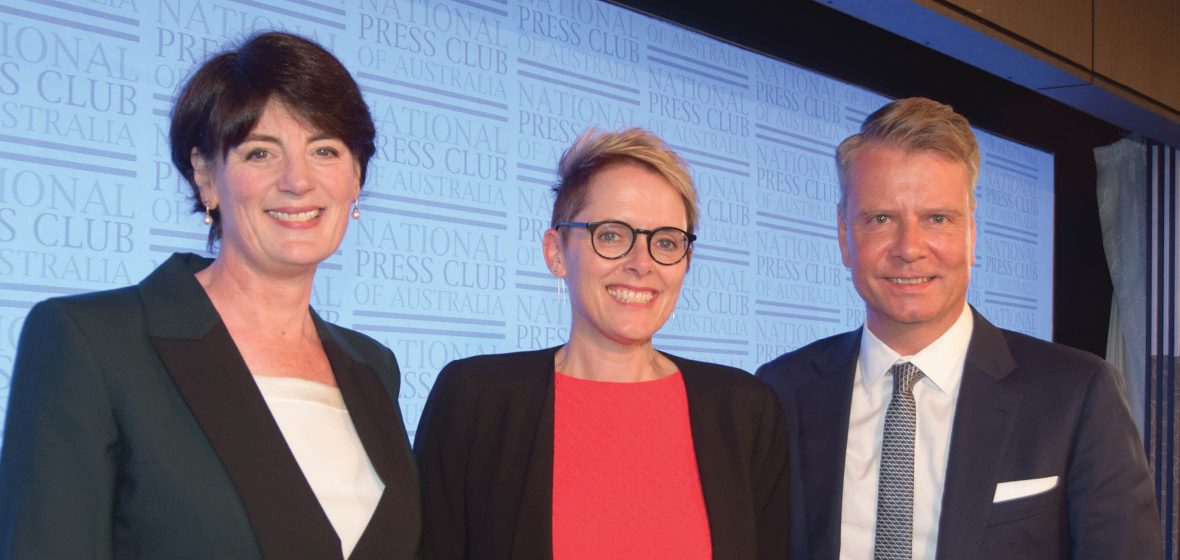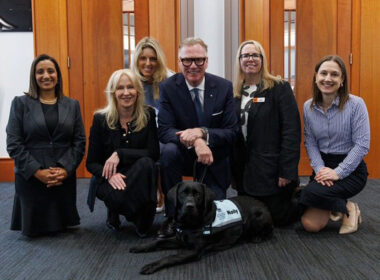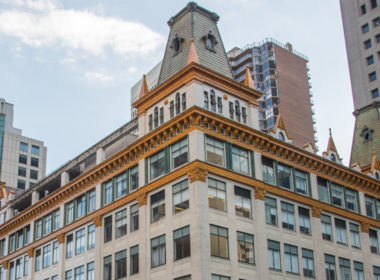The President of the Law Council of Australia handed down a scathing analysis of the state of Australia’s legal system at the National Press Club in Canberra last month.
In the first speech the Law Council has given at the club in 15 years, President Morry Bailes claimed that Australia’s legal system had become too expensive for many Australians to access justice. He said the legal assistance sector and courts needed an immediate injection of $390 million “as a minimum” to get back on their feet and to serve Australians in need.
“Our longstanding reputation as a fair, open-hearted and prosperous country with a strong legal system has distracted us from an uncomfortable truth: the growing numbers of people unable to access justice who are excluded from that system and thus from equality before the law,” said Bailes. Bailes and Immediate Past-President Fiona McLeod addressed a live audience at the Press Club, as well as a large number of online viewers who watched a live stream, for the first “Justice State of the Nation” address by the Law Council.
They released a progress report and three early recommendations from the Justice Project – a review of the state of access to justice in Australia overseen by former High Court Chief Justice Robert French. These recommendations included the need for a whole-of-government approach to reform, introduction of justice impact tests for government policies, and a major boost in funding for legal assistance and the courts.
“During the Justice Project I heard stories that moved and stunned me,” said McLeod. “Australia needs a plan. The Justice Project will provide us with a roadmap.” Data from the National Association of Community Legal Centres (NACLC) in 2017 showed that Australia’s community legal centres were turning away more than 160,000 people every year due to a lack of resources. These centres provide free legal help to the most vulnerable and disadvantaged groups in Australia, with the 2017 NACLC Census showing 15.3 per cent of community legal centre clients identified as Aboriginal or Torres Strait Islanders and 26.6 per cent had a disability.
Bailes said that as the gap between rich and poor widened, growing numbers of Australians were being caught in the “missing middle”, unable to afford lawyers but unable to qualify for legal aid. “These are the ordinary working people who cannot afford legal representation for everyday legal concerns such as commercial matters, family law, injury compensation,” said Bailes. “Those in the ‘missing middle’ . . . fall through the cracks in our justice system.”
His comments follow the release of the Household Financial Comfort Report in 2017 which found job insecurity, cuts in wages and underemployment were putting Australian households under increasing strain. While many wealthy households were experiencing income gains, 41 per cent of households earning less than $40,000 reported income losses, the report said.
Bailes made an impassioned plea for the government to introduce reforms that would help to correct the “catastrophic over-incarceration of Aboriginal and Torres Strait Islander peoples”. The Australian Bureau of Statistics reported last year that this group was the most incarcerated people on earth by percentage of population (2,346 per 100,000).
“We need to tackle the many contributing factors such as the state of bail and parole conditions, mandatory sentencing laws, and the failure to institute early intervention strategies and address intergenerational trauma,” said Bailes.
“The work of the Law Council is now more important than ever. We must bring our strongest and most measured arguments to the table to defend the rule of law.”




